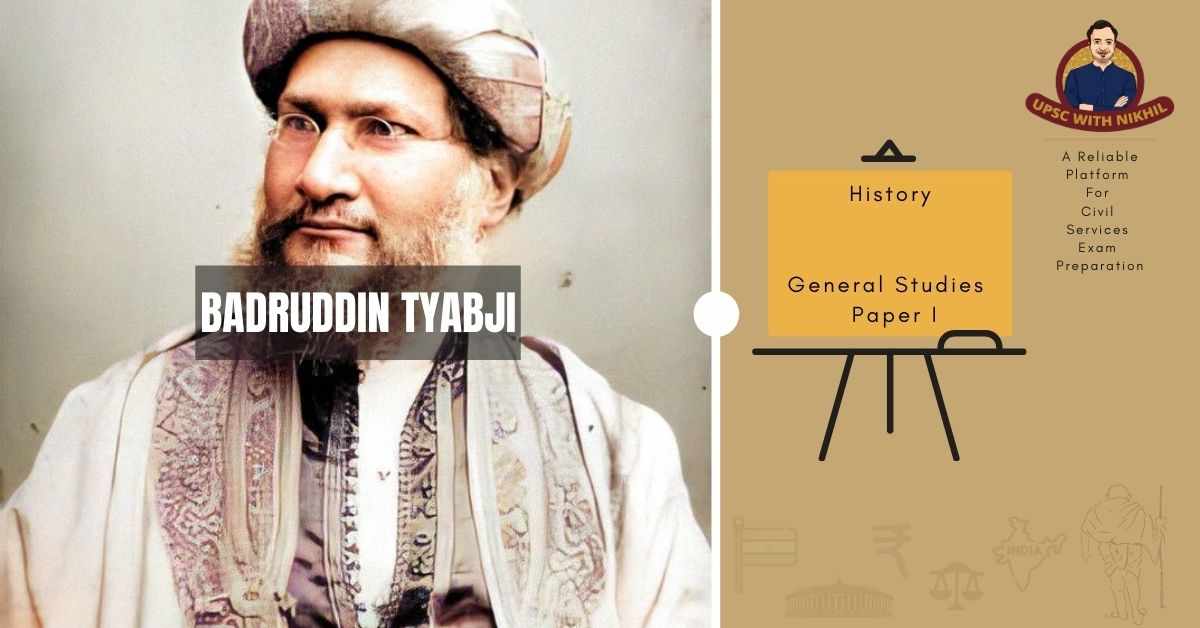Badruddin Tyabji
Badruddin Tyabji was born in Cambay, near Bharuch, in October 1844 to a Shia Sulaimani Vohra family.
His participation with the Congress was immediately accepted by the new body, as he was educated at Bombay's Elphinstone and had relations with England.

The key point was that he was an educated Muslim who was aware of the problems that both Muslims and the country were facing.
He was the party's third President, and he helped to solidify the idea that the Congress served Muslims and Hindus at the time.
But, as a well-mannered gentleman, he avoided a squabble with the British as well as the large Hindu community. His main interest was law, and he became the first Indian Chief Justice of a High Court.
• Mullah Tyab Ali Bhai Mian, a member of the Sulaimani Bohra community, raised him in a well-respected Bombay household.
• He was the youngest of seven sons of Mullah Tyab Ali Bhai Mian, a member of the Sulaimani Bohra community who encouraged all of his sons to get the best education possible.
• Badruddin enrolled in Newbury High Park College in London in 1860, inspired by his elder brother, Camruddin, who was the first Indian solicitor admitted in England and Wales.
• In 1863, he also attended the University of London and Middle Temple.
• In December 1867, he returned to India and became the first Indian barrister in the Bombay High Court.
• He was elected to the Bombay Municipal Corporation in 1873.
• He was a member of the University of Bombay senate from 1875 to 1905.
• He served on the Bombay Legislative Council from 1882 to 1886.
• Along with Pherozeshah Mehta and Kashinath Trimbak Telang, he established the Bombay Presidency Association in 1885.
• He began working for the Indian National Congress in 1885.
• In reality, Badruddin and his brother Camruddin were among the founding members of the Congress party's core team.
• In 1895, he was appointed to the Bombay High Court as the first Muslim judge and the third Indian to hold the seat.
• Badruddin was the first Indian to hold the rank of Chief Justice of the Bombay High Court, having been born on October 10, 1844.
• To facilitate Muslim group social engagement, he founded the Islam Club and the Islam Gymkhana.
• At the 1888 Allahabad Congress, Badruddin submitted Resolution No. XIII to bring Muslims together.
• He was also a vocal opponent of the zenana system.
• In 1893, Badruddin, Naoriji, and Bonnerjee formed the Indian Parliamentary Committee in England.
• Due to a heart attack, he died in London in 1906.


